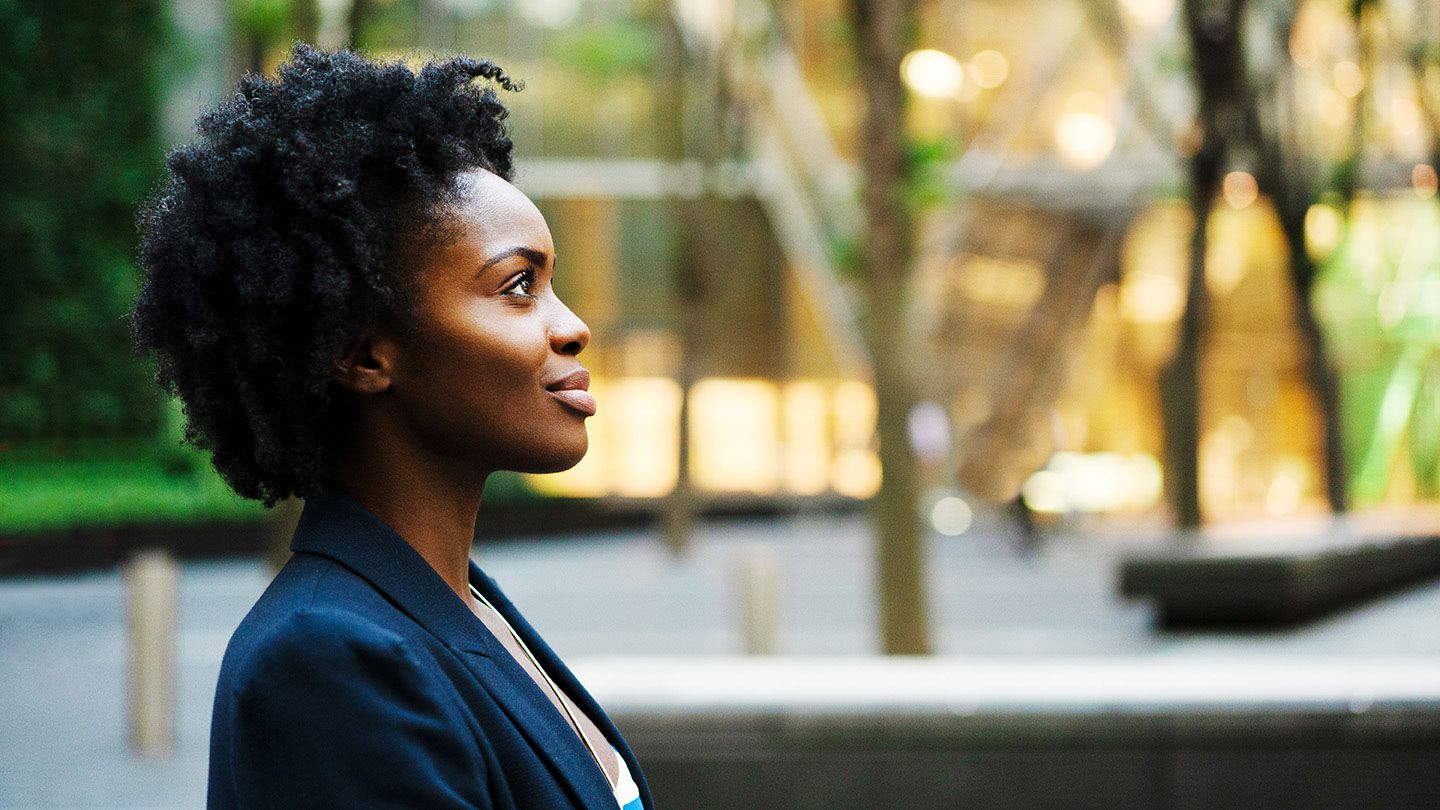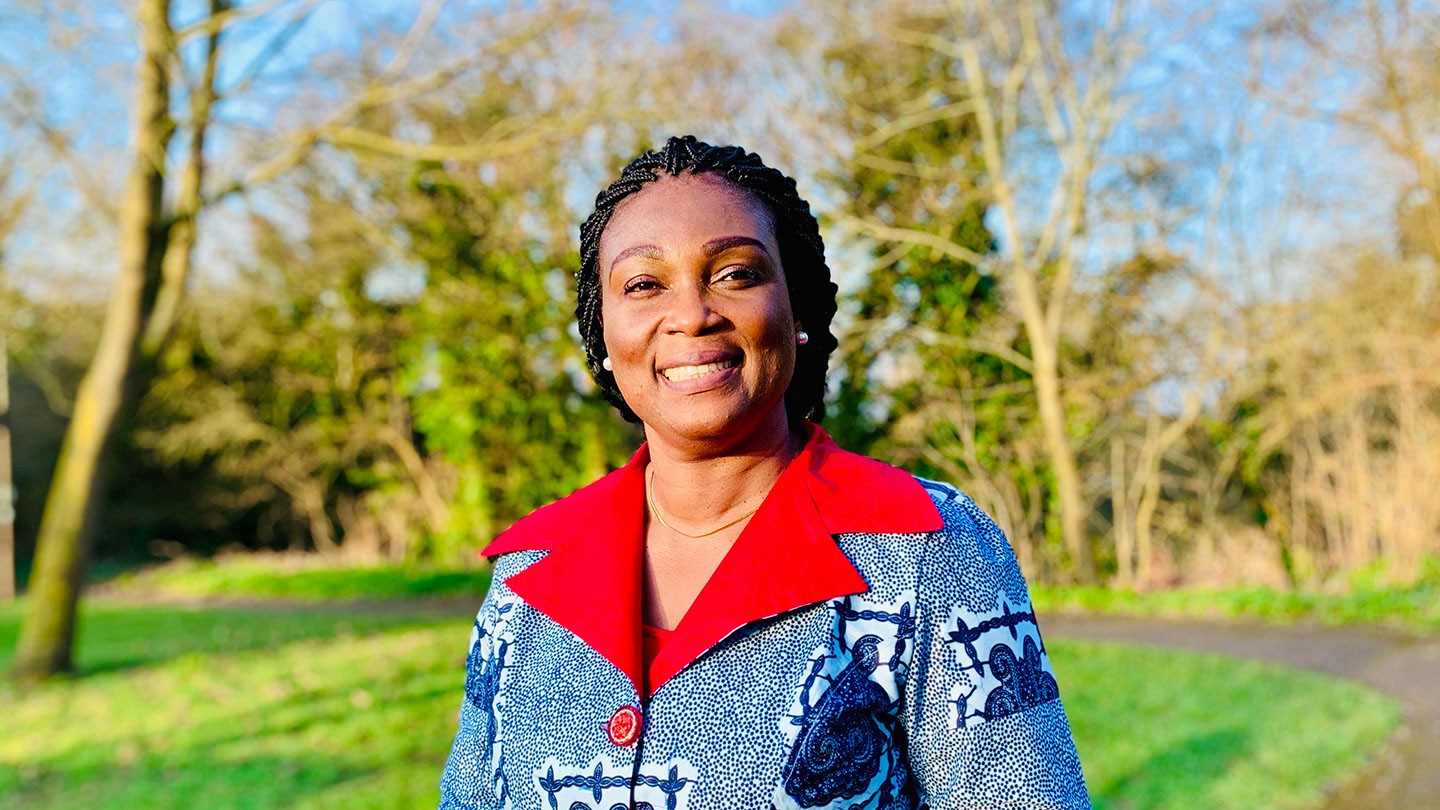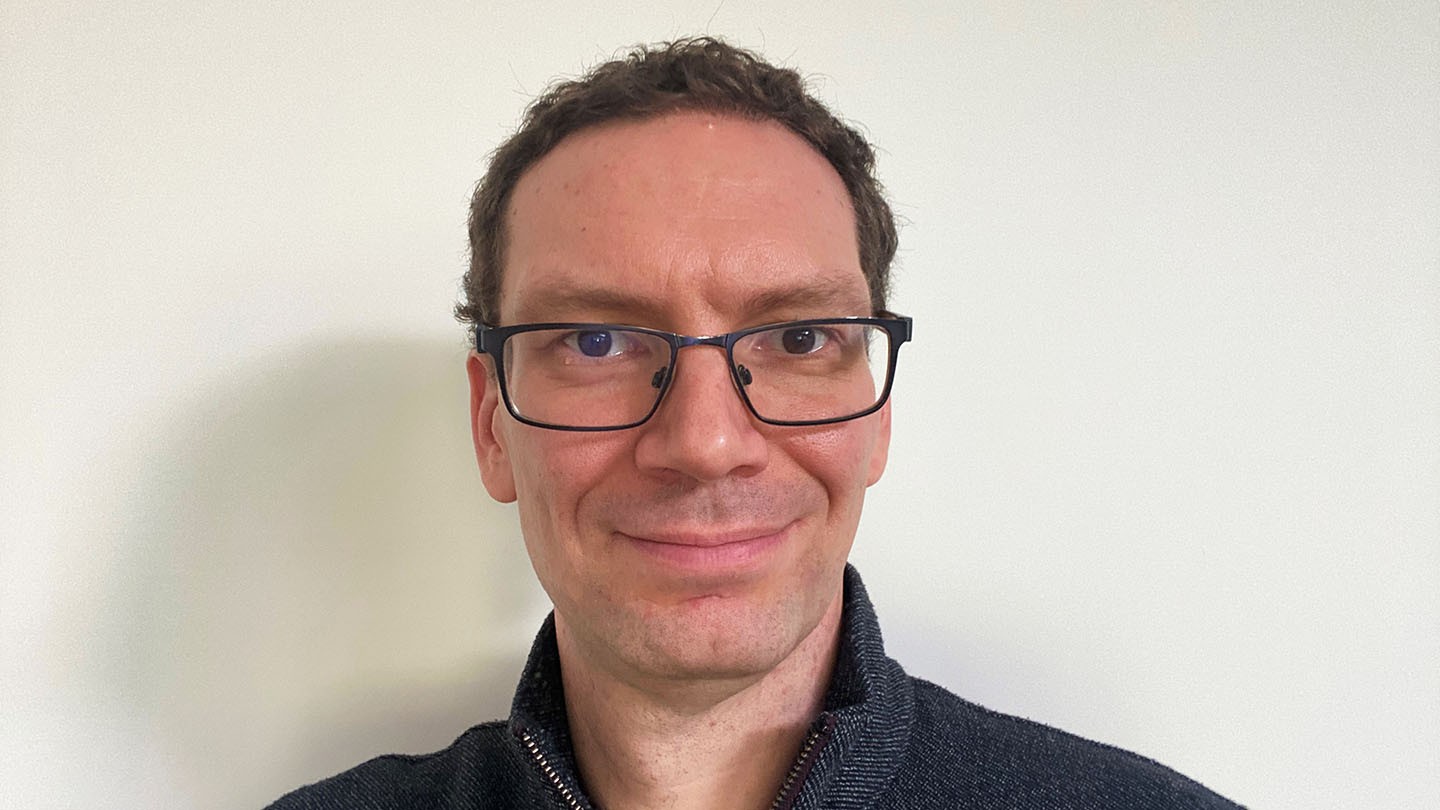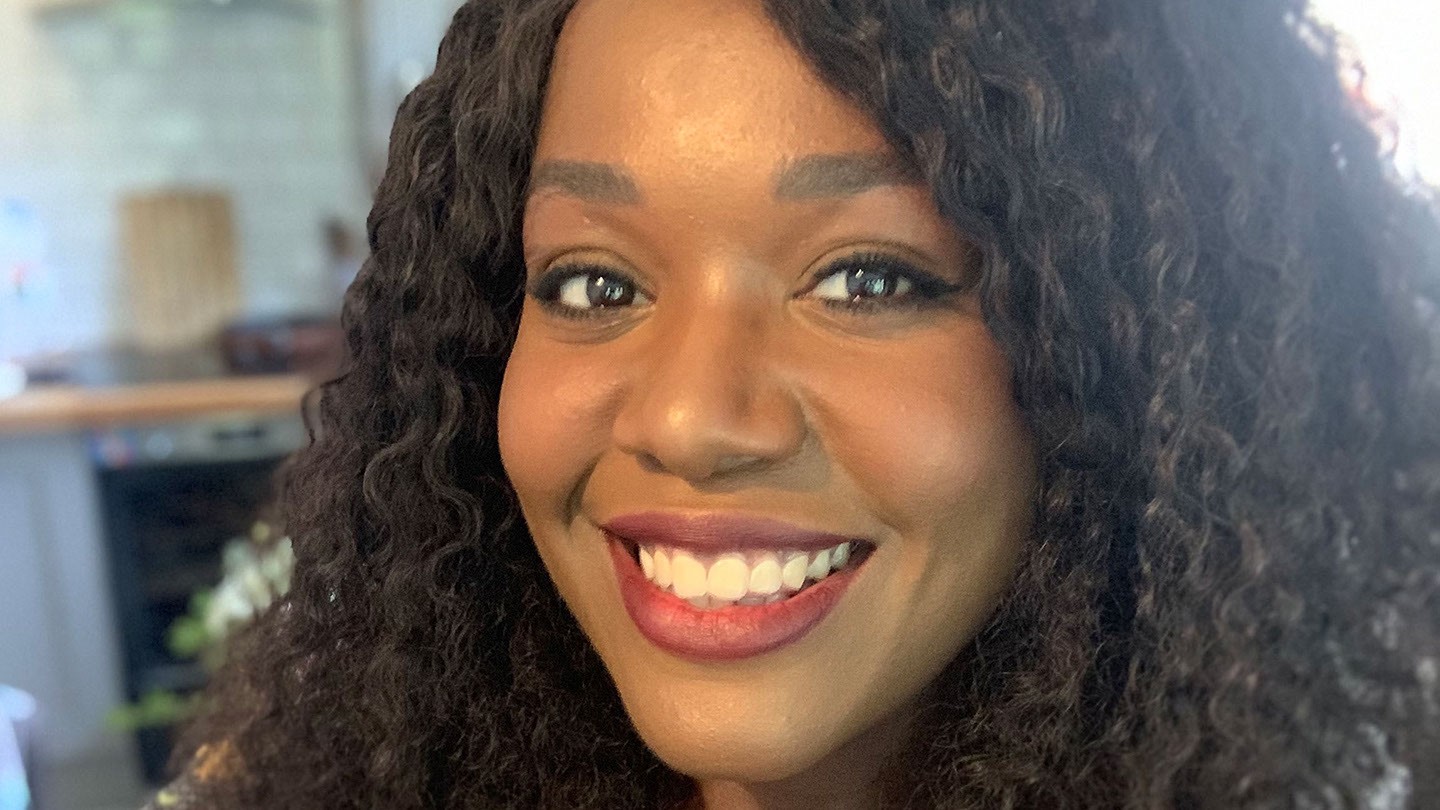
Innovation
Helping Black founders scale their businesses
The first Barclays Black Founder Accelerator saw 25 entrepreneurs take part in a programme of expert masterclasses and mentoring. Barclays’ Liz Boadi and James Ankers join Indie Gordon from project partner Foundervine to explain the motivations behind the project – and explore how it’s boosting diversity across the bank’s entrepreneurial networks.
The first ever cohort of the Barclays Black Founder Accelerator has seen the 12-week programme draw to a close at a Demo Day – where the founders pitched their businesses to an audience of potential clients and investors.
It’s a hugely rewarding moment for Liz Boadi, Ecosystem Manager at Barclays Cranfield Eagle Lab, who has been supporting the tech founders since they started the virtual programme in November.
“It’s great to see the cohorts showcase such excellent businesses,” she says. “Some came with new ideas and initial minimum viable products (MVPs) – and now are leaving the programme endowed with what they need to get to the next level and beyond.”
The Demo Day marks the end of a busy few months for the accelerator participants, adds Indie Gordon, Senior Programme Manager at Foundervine – the social enterprise specialising in digital startups, which partnered with Barclays to run the programme.
Things are much stronger when you have different perspectives and different people contributing.
Ecosystem Manager at Barclays Cranfield Eagle Lab

Liz Boadi says seeing the first cohort of founders pitch their businesses at the Demo Day was a highlight of the programme.
The accelerator has seen 25 founders undertake a range of sessions designed to help their pre-seed businesses to grow and scale – including coaching, investor hours, drop in sessions and a range of masterclasses covering topics from marketing and finance to investment and branding.
“12 weeks seems long, but actually it is not a lot of time to fit in as much as we fit in,” Gordon explains, citing the enthusiasm, determination and drive of the founders, who have balanced the programme with packed schedules. “They're still trying to work, run a business and have a personal life. They’ve been present and taken every single opportunity. It has just been phenomenal.”
James Ankers, Barclays Ventures’ Chief Investment Officer and a mentor at the Black Founder Accelerator, echoes this sentiment. “Being a founder is one of the most difficult roles there is in business,” he says.
“The horizon that founders need to cover in terms of skills and experience in order to develop and grow their businesses is just enormous. To have a quality set of mentors who are willing to provide their time is a fantastic thing that we at Barclays can offer.”
Starting up the accelerator
The idea for the accelerator started within Barclays’ own entrepreneurial network, Eagle Labs, when LawTech Ecosystem Manager and WeAreTheCity Rising Star award-winner Natalie Ojevah wanted to find a way to support Black founders who might be facing barriers to growing their businesses.
According to a report from non-profit organisation Extend Ventures, only 0.24% of UK venture capital investment went to Black founders between 2009 and 2019 – and just 0.02% of venture capital investment went to Black female founders. Black people make up 3.3% of the UK population. Research from Google also found that 88% of the Black founders surveyed had self-funded part of their venture.

James Ankers says ensuring all founders have access to opportunities is crucial to driving innovation.
We need to make sure that all founders – whatever their background or geography – are getting the most opportunity they possibly can.
Barclays Ventures’ Chief Investment Officer
Reflecting on the programme’s ambitions, Ankers says: “Many founders are not given an opportunity due to various barriers to entry or success. We need to, as a collective, make sure that all founders – whatever their background or geography – are getting the most opportunity they possibly can.
“There is so much innovation out there, so many good ideas. We need to make sure that we're drawing on all the ideas that we possibly can.”
Seeing the opportunity to help some of these businesses to grow, the team at Barclays approached Foundervine to make the accelerator a reality – a partnership Boadi describes as a “perfect marriage”. It’s a collaboration that has made the most of the expertise and resources of both organisations, says Gordon.
“Barclays has an amazing reputation through Eagle Labs and the work they do with entrepreneurs within the UK, and we also have a great reputation with startups within the UK. We have so many niche connections within the startup ecosystem which benefit Barclays, and Barclays has scale which benefits us – so we're able to really support each other and create maximum impact.”
Ankers adds: “The rewards are great for both parties. Walking away from each conversation with my mentee feeling that I've helped to move his thinking forward has been a highlight. I never really know what we’re going to be discussing week to week, which is fantastic.”
“And that's what it’s about for us,” continues Gordon. “It's not necessarily about us as organisations, but about coming together to be able to empower all of these other companies and give them the best experience. We start our accelerator at the level we do because we want to empower those that had the vision and took the steps to create a business.”
The future of the Black Founder Accelerator
A key part of running the programme’s first season has been flexibility, with the teams at both Barclays and Foundervine encouraging the founders to share how the accelerator could be adapted to fit their interests.
“One thing the founders mentioned was that the virtual setting did not give them a chance to network with each other,” explains Boadi. “So, before each masterclass, we put them in breakout rooms so they could connect with each other and build the sort of relationship they would have built face to face.”
It's about coming together to empower these companies and give them the best experience.
Senior Programme Manager at Foundervine

Indie Gordon says teams at Foundervine and Barclays have collaborated and supported each other to “create maximum impact”.
Gordon continues: “Our approach is not just about your business, but it's about you as well. My hope is that as we empower current founders, they then come back and lead some of those masterclasses in the future.”
The team has been delighted by feedback they have received so far, which has emphasised the effect the programme has had on its participants. “We came to clarify our MVP, but we left with a business and a clear strategy to reach success,” says co-founder Samuel Ola, whose company Medified has created an app to help people manage long term health conditions. “Besides the amazing masterclasses filled with expert mentors, I had the privilege of meeting 24 other outstanding Black founders. The calibre of startups on this cohort is incredibly inspiring – and I look forward to seeing them on Forbes and TechCrunch covers soon!”
Gordon and Boadi hope the programme will have a positive impact on diversity across the entrepreneurial ecosystem as a whole. While only 25 of the 200 applicants were selected to take part in the accelerator, the team has now reached out to more than 100 unsuccessful applicants to investigate ways to support them.
And although the first season of the accelerator has now ended, the focus on improving diversity and backing underrepresented founders will continue across Barclays’ networks.
“Previously, Black History Month in October was when you’d hear diversity being spoken about,” Boadi says. “But I'm liking what it is now – that diversity is on each person's agenda. That’s what it should be. Things are much stronger when you have different perspectives and different people contributing and working together. And by creating an awareness of how important that is, I think we are on the right path to creating successful and inclusive ecosystems.”